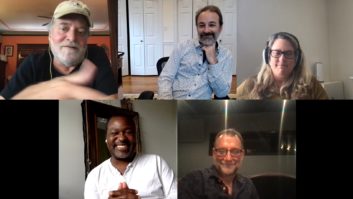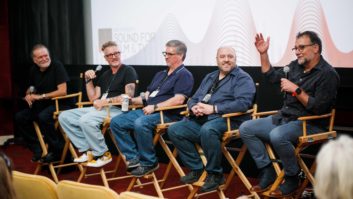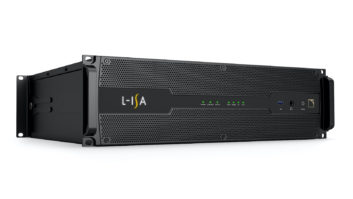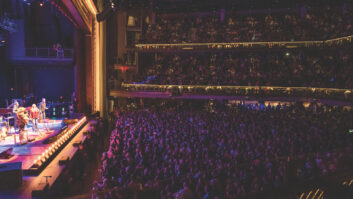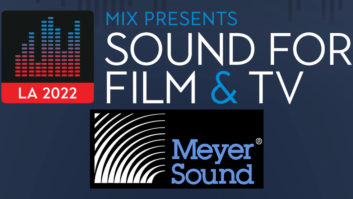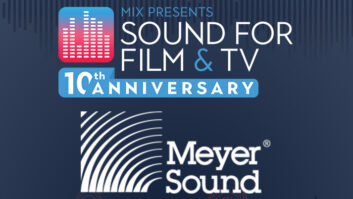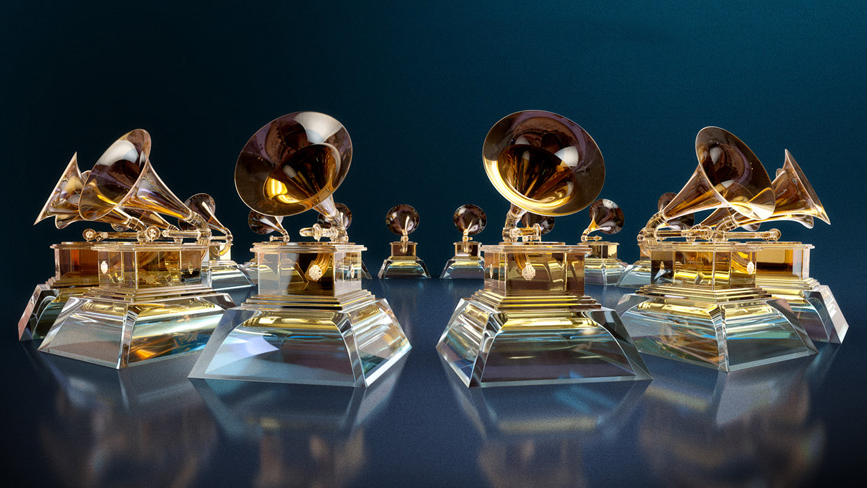
Los Angeles, CA (November 28, 2023)—The Grammy Museum Grant Program will award $200,000 in grants to support research on a variety of subjects, as well as archiving and preservation programs.
The Grammy Museum Grant Program provides funding annually to organizations and individuals to support efforts that advance the archiving and preservation of the recorded sound heritage of the Americas for future generations, in addition to research projects related to the impact of music on the human condition.
Grammy Engineering and Production Nominations Announced
In 2008, the GRAMMY Museum Grant Program expanded its categories to include assistance grants for individuals and small to mid-sized organizations to aid collections held by individuals and organizations that may not have access to the expertise needed to create a preservation plan.
The assistance planning process, which may include inventorying and stabilizing a collection, articulates the steps to be taken to ultimately archive recorded sound materials for future generations.
PRESERVATION ASSISTANCE GRANTEES
Colin Morgan — Sedro-Woolley, Washington • Awarded: $5,000
This project will implement the archive of Wadada Leo Smith, an established and well-known creative musician, composer and trumpet player. An early member of the Association for the Advancement of Creative Musicians and one of the leading forces in music and education since the 1960s, Mr. Smith has advanced a wide variety of styles and techniques in the contemporary arena. The archive will be a definitive repository of Mr. Smith’s work in music.
Painted Bride Art Center, as fiscal sponsor for Philadelphia Jazz Legacy Project — Philadelphia, Pennsylvania • Awarded: $5,000
The Philadelphia Jazz Legacy Project, through its fiscal sponsor Painted Bride Art Center, will plan the digitization and dissemination of 77 interviews with Philadelphia jazz musicians. Conducted from the early 1980s to early 2020s, the interviews are a treasure trove of jazz history, documenting the lives and careers of both world-famous and locally based Philadelphia jazz musicians.
Regan Sommer McCoy — New York, New York • Awarded: $5,000
The Mixtape Museum will begin planning, assessment and preparation to archive and preserve its recorded sound collections. These recordings contain some of the earliest sounds of hip-hop and one-of-a-kind mixtapes by fans and practitioners. The goal is to make these recordings available for research and use by the public.
Rico Washington — New York, New York • Awarded: $5,000
This project will preserve the sound recordings of Johnnie Mae Matthews, an influential African-American entrepreneur in Detroit’s music industry who shaped the careers of future stars such as the Temptations, Diana Ross and Motown mogul Berry Gordy.
By digitizing the master tapes of her solo recordings and her record label catalog, this project corrects the erasure of African-American women’s contributions, highlighting their vital role in shaping music history.
PRESERVATION IMPLEMENTATION
Cape Breton University, Beaton Institute — Sydney, Nova Scotia • Awarded: $16,699
Founded in 1949, the Rodeo Records/Banff Collection is the most comprehensive example of significant regional and national Canadian commercial recordings in existence. This project will complete the digitization of at-risk master recordings and 78 rpm records, improve preservation methods for the physical collection, and provide greater online access for researchers.
Country Music Hall of Fame and Museum — Nashville, Tennessee • Awarded: $20,000
The Country Music Hall of Fame and Museum will assess, catalog, re-house, and make accessible a collection of approximately 8,160 radio transcription discs containing historically significant recordings. Select recordings from the collection will then be prioritized for digitization in the second phase of the project, based on preservation needs. The collection features interviews and performances with a variety of country music artists.
East Tennessee State University — Johnson City, Tennessee • Awarded: $20,000
The Archives of Appalachia at ETSU will clean and digitize 246 recordings from the Folk Festival of the Smokies in Cosby, Tennesee (1967-1999) and the Grayson County Old-Time Fiddlers’ Convention in Independence, Virginia (1968-1979). These recordings contain unique performances that highlight old-time and traditional Appalachian music.
Kronos Performing Arts Association — San Francisco, California • Awarded: $12,500
This project will preserve and provide public access to content from the Kronos Hour and Radio Kronos broadcasts (1984-1991). Distributed by American Public Media, the programs feature recordings of new work by Kronos Quartet and guest artists, along with interviews of many prominent musicians and composers.
The collection captures a unique view of the late 20th century cultural landscape across many musical genres.
University of Iowa Libraries — Iowa City, Iowa • Awarded: $11,000
The University of Iowa Libraries will digitize, preserve, transcribe, and translate Czech music and recitations on cylinder dating from 1903-1908 from two labels: Ed. Jedlička and Columbia.
The Jedlička recordings constitute some of the earliest recordings made for a specific ethnic group, and include music, poetry, stories, and comedy. The Columbia recordings are rare European issues of Czech music and comedy.
University of North Texas — Denton, Texas • Awarded: $20,000
This project will digitally preserve an estimated 150 hours of interviews, conducted or collected by former NPR host and producer Tim Owens. The collection includes major jazz artists including Dizzy Gillespie, Percy Heath, Hampton Hawes, Milt Jackson, Arif Mardin, Tony Bennett, Jay McShann, and others. Once digitized, these items will be preserved in and accessible via the UNT Digital Library.
SCIENTIFIC RESEARCH GRANTEES
Laboratories of Cognitive Neuroscience – Boston Children’s Hospital, Harvard Medical School — Boston, Massachusetts • Awarded: $19,848
Children with ADHD display vulnerabilities in rhythm perception and motor production that interfere with everyday activities. This project will characterize behavioral and neurophysiological profiles of auditory-perceptual difficulties in pediatric ADHD and their associations with motor performance. Findings have the potential to inform the individualized treatment of auditory-motor difficulties in pediatric ADHD, including a music-based intervention.
New York University — New York, New York • Awarded: $19,953
Increasing use of smart devices and social media among teenagers has led to concerns regarding their impact on mental health and cognition. This project aims to use digital art-based interventions (music, visual arts) to transform adolescent social media usage into stimulating activities, to mitigate negative effects of excessive ‘passive’ use of these platforms. We hypothesize that these will promote plasticity in brain networks previously described as impaired by social media overuse.
Northwestern University — Chicago, Illinois • Awarded: $20,000
This project will examine the use of singing and breathwork as an intervention for mitigating stress and increasing the psychological and social well-being of children globally. Using biomedical sensors, psychological measures and behavioral analysis to holistically evaluate effects, the goal is to improve understanding around and provide evidence for how music can serve as an accessible, low-cost response to mental health concerns across diverse cultural contexts.
University of Toronto — Mississauga, Ontario • Awarded: $20,000
When words are put to song, they are neurally tracked more accurately than spoken words, but no studies have related neural tracking to real-world outcomes like comprehension. Using mobile electroencephalography (EEG) in the classroom, this project will determine how neural tracking of song and speech relates to comprehension, intelligibility and memory. The results will inform basic science, classroom instruction and interventions for individuals with dyslexia.

